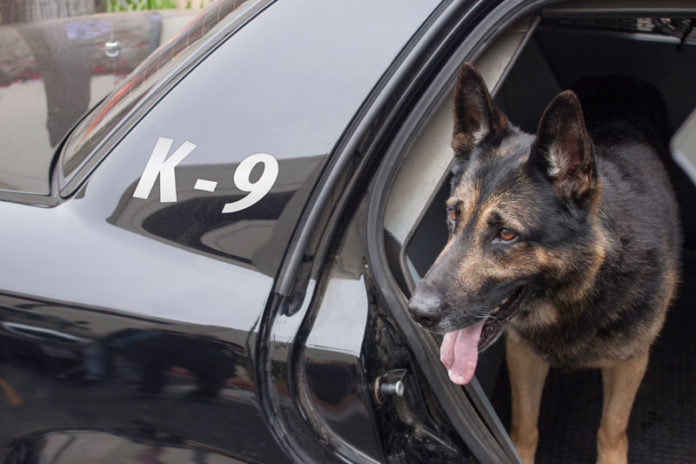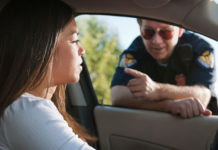The U.S. Supreme Court ruled in the case of Rodriguez v. United States that police may not detain a driver at a traffic stop longer than necessary to check documents, search for outstanding warrants and issue a citation – not to call in K9 units to conduct drug searches.
The case concerns the March 27, 2012 traffic stop of Dennys Rodriguez by Nebraska Police officer Morgan Struble who observed Rodriguez veering off the travel lane on to the shoulder and back again onto the road.
Officer Struble questioned Rodriguez and asked for his driver’s license and car registration. The officer returned to his patrol car to check Rodriguez’s documents and to find out whether he had any outstanding arrest warrants. Officer Struble found nothing. Struble repeated the process with a passenger traveling with Rodriguez and everything checked out as well.
Struble issued Rodriguez a warning but did not let the men leave. Instead, Struble, a K9 officer, asked Rodriguez if a police dog could sniff around his car. Rodriguez refused.
Struble responded by detaining Rodriguez until another officer arrived where upon a police dog sniffed the car and alerted officers to the presence of drugs. A search of the vehicle turned up a bag of amphetamines.
A federal magistrate judge who reviewed Rodriguez’s motion to suppress the evidence found that officer Struble had nothing other than “a rather large hunch” to justify a search with a dog. Rodriguez was charged and found guilty on a drug offense and received a five year prison sentence.
On appeal, a federal appeals court ruled that the search was a “de minimis” (lacking significance or importance) intrusion of Rodriguez’s rights and that Rodriguez’s conviction and prison sentence would stand.
The Supreme Court disagreed by a 6-to-3 vote and remanded the case back to the appeals court for further consideration consistent with the decision.
Writing for the court majority, Justice Ruth Bader Ginsburg said that police may check for a driver’s license, ask for a registration and proof of insurance and check for outstanding warrants but that the stop becomes “unlawful if it is prolonged beyond the time reasonably required to complete the mission of issuing a warning ticket.”
Ginsburg added that a traffic stop is aimed at enforcing the traffic laws and that a traffic stop cannot be “prolonged” without reasonable suspicion that a crime had been committed pursuant to Supreme Court precedent on the issue.
Dissenting were Justices Clarence Thomas, Anthony Kennedy and Samuel Alito. Alito called the Supreme Court’s majority decision was “unnecessary, impractical, and arbitrary” because the officer smelling a strong scent of deodorizer in the car – a tactic used by drug dealers to hide the odor of drugs in a vehicle.
Although Rodriguez won in the Supreme Court, he must return to the lower court for a final disposition in his case.





























